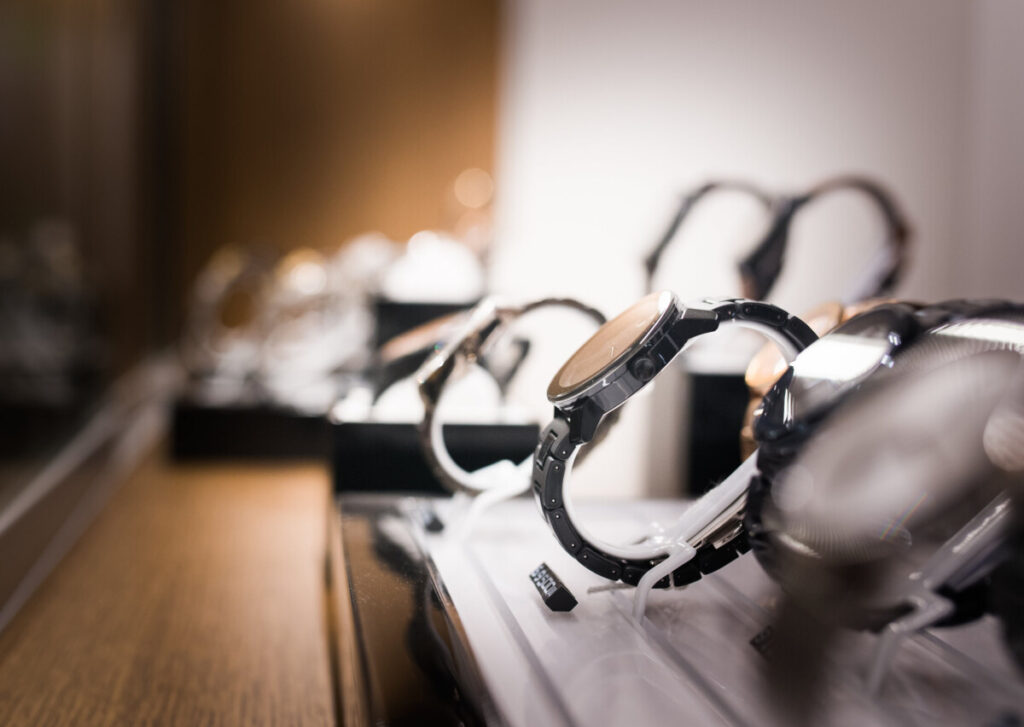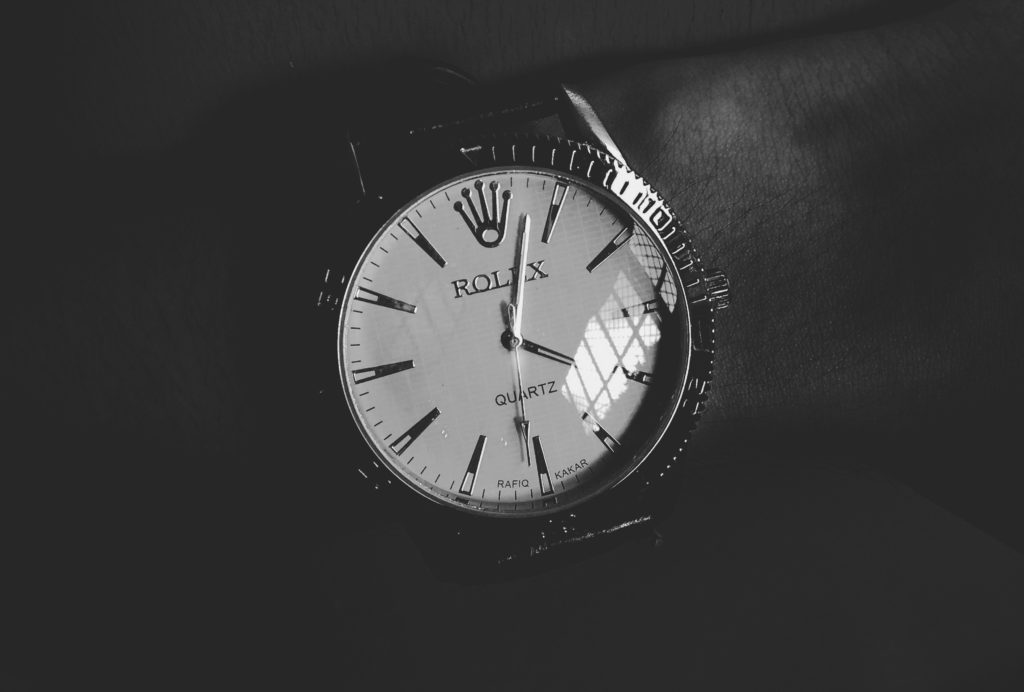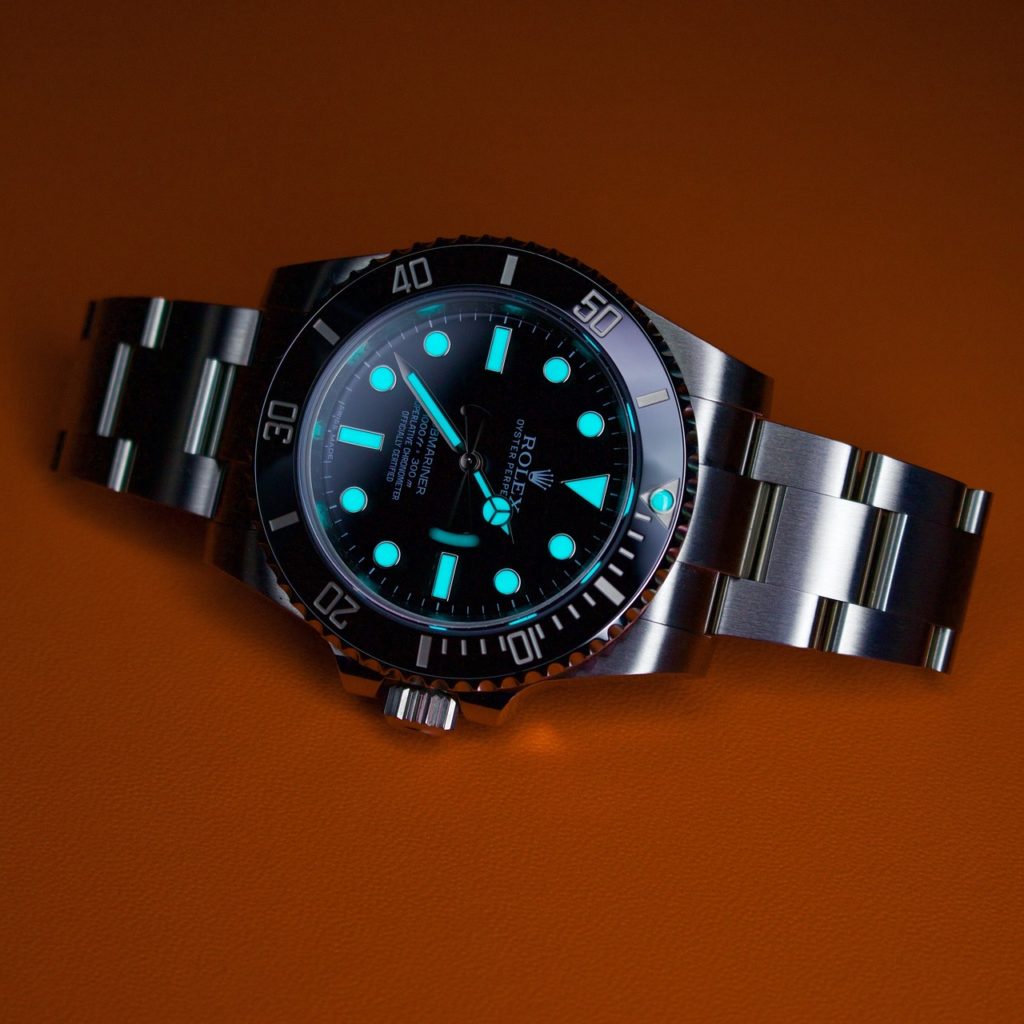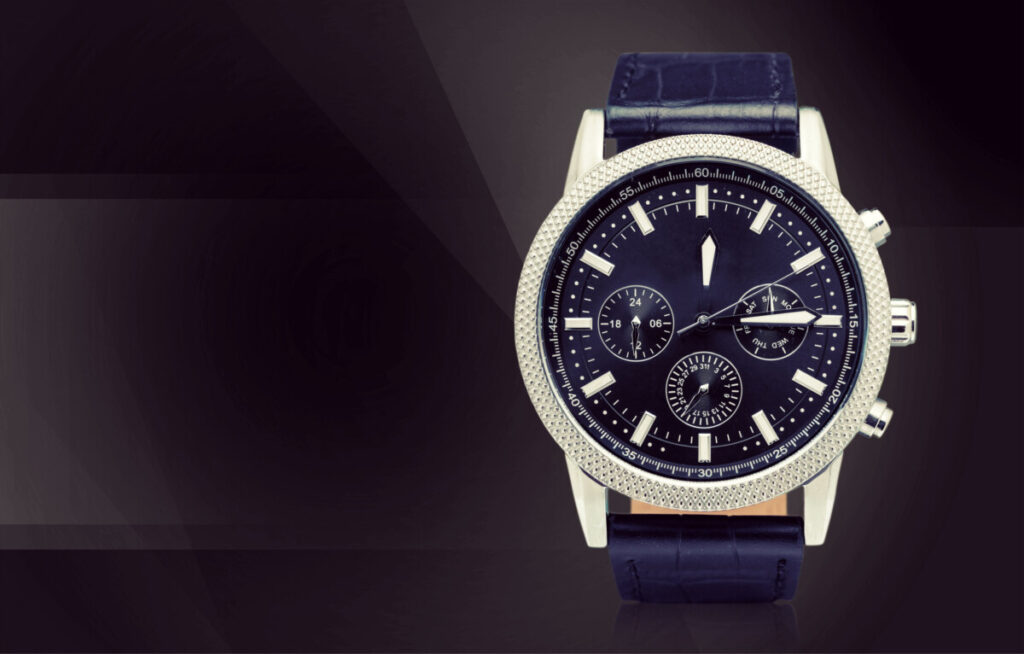Prefer to listen to us read this article? Click here!
In today’s world, there are a thousand different devices for the public to choose from that will do everything from telling the time to tracking the calories you burn. However, many would prefer to stick with a good old watch, but they are faced with a choice: do I buy a manual watch or an automatic watch? Which one is better?
Manual watches are usually best for those who are watch enthusiasts or collectors. Automatic watches are a more convenient option for those who just want the time told or who may just want them for their fashion appeal. The only real difference between the two is how they are wound up.
If we’re being honest here, different kinds of watches suit different kinds of people, and only you and your preferences will be able to decide what kind of person you are and which kind of watch will serve you best. If you are looking for an answer about which watch to buy, you have come to the right place! Read on for some details on each kind of watch, as well as the pros and cons.
Manual Watches: The Basic Details
As mentioned before, the largest difference between manual and automatic watches is the fact that one of them is wound manually and one of them is wound automatically. Manual watches can usually run for up to 30-40 hours before needing to be wound again. Others may not last as long.
Because each watch is different, it is somewhat difficult to pin down a particular number of hours they will last for, but hopefully, you get a general idea. Just keep tabs on your watch so you know for sure when it stops ticking. Manual watches are highly known for their antique appearance and chic statement in the fashion world. They are particularly beloved among those who value heirloom timepieces and jewelry.
While you can wear a mechanical watch simply for the way it looks, it is also a remarkably reliable timepiece to have on hand. Manual watches are comprised of a thousand different, tiny pieces that help them to tick. Both manual and automatic watches are powered by a mainspring which is tightly wound (kind of like a tape measure). As the spring slowly unwinds, the energy generated by the movement will spread to the rest of the watch’s parts, causing it to tick.
Manual watches are carefully crafted with expert hands, and for this reason, they can be a bit more expensive. This is what makes them such popular heirlooms that family members will often pass down to one another. It is also why they are popular in general; expensive watches like that simply won’t fade and break overnight. Manual watches are handy and reliable when it comes down to it. Whether you want to use it as a timepiece or simply as a flashy piece of jewelry is completely up to you.
Automatic Watches: The Basic Details
Much of what was said about manual watches is true for automatic watches as well. Like manuals, automatics are powered by a tightly wound spring (the mainspring). The energy of this spring’s movement spreads to the rest of the watch’s parts which in turn creates more movement and allows the watch to function. The only real difference here is that an automatic watch has a rotor that keeps the spring winding and unwinding on its own.
This rotor is attached to the movement of the watch’s wristband. Believe it or not, you are what makes your automatic watch tick! When you move your hand/wrist around, it creates movement for the rotor, which then feeds that movement back to the mainspring. Thanks to that kind of movement, the watch will wind and stay wound all on its own.
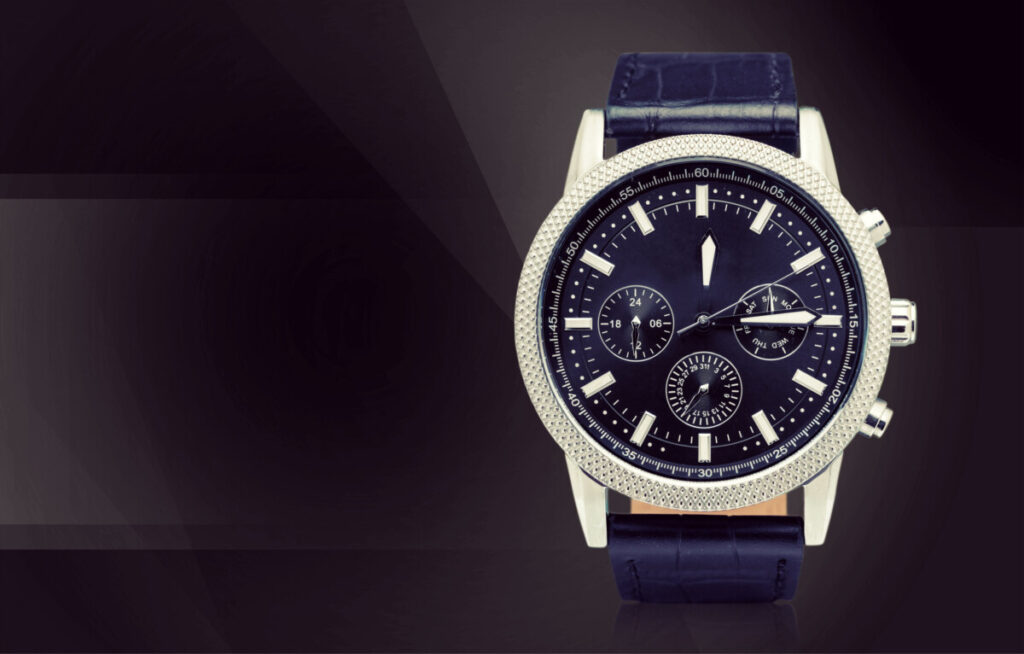
Of course, you will probably have to wind an automatic watch at some point, but that only usually happens when the watch starts to get old and worn. Wear and tear will make it less accurate over time, but like manual watches, automatic watches were meant to stand the test of time.
You don’t need to worry about it dying too fast because it can withstand quite a lot. Automatic watches are often a popular choice. Of course, winding a manual watch now and then is not a huge inconvenience in one’s life, but it does remain something of an interruption. You will just have to be extra vigilant about listening and paying attention to your watch. Make sure to give it a listen now and then to see that it’s still going.
Both options are great, and both are appealing to different buyers. However, knowing the pros and cons of both types will most certainly help you to decide which watch is the right watch for you.
Manual vs. Automatic: The Pros and Cons
Both watches are great and have different things to offer. As to which one has better quality, that is a difficult thing to say because aside from the winding method, automatic and manual watches are not actually that different. As mentioned earlier, it is often largely a matter of opinion. Here are a few pros and cons of each type of watch that could help you to make up your mind.
Pros: Automatic
One of the nicest things about automatic watches is that they’re convenient and fairly worry-free. They already wind by themselves, and on top of that, they don’t require batteries that will need replacing in the future. You could potentially have the same watch for several years and not ever have to worry about replacing it or even winding it at all!
Additionally, automatic watches require very little maintenance. Aside from maybe keeping it polished and clean, there is little else you will have to do to keep it running. Of course, if it were to stop and not start again, you would need to take it to a repair shop to diagnose the problem. Other than that, however, you will find it remarkably easy to care for an automatic watch.
Automatic watches are a great option for those who value convenience and efficiency. As mentioned before, winding a manual watch isn’t entirely difficult, but if you somehow didn’t notice your watch had stopped and you were depending on it for the time, it could throw your schedule off. You will rarely have to worry about an automatic watch stopping without warning. This usually only happens after it has gotten a bit older.
If accuracy is important to you, then you should look no further than an automatic watch to do the job. These will usually run a few seconds behind the actual time, which, in retrospect, is not a high price to pay for such a timepiece. If you have a job that revolves around time, you may want to choose a higher-quality watch that won’t skip a beat. Otherwise, an automatic watch should suit you just fine.

Automatic watches are also easier to find nowadays. Manual watches are widely considered to be more of a fashion statement or antiquity than anything else. Of course, many watch enthusiasts will still wear a well-kept manual watch to tell the time, but as far as the watch market is concerned, it is far easier to find various types of automatic watches.
Automatic watches have a different kind of aesthetic beauty than manual ones do. They can look old and antique, but nowadays, it is difficult to find an automatic watch that isn’t smooth, sleek, and designed with the modern world in mind. There is something exceptionally pleasing to the eyes about automatic watches. If an eye-catcher is what you’re after, then an automatic watch is probably the best you could do.
At the end of the day, you can buy an automatic watch for nothing other than its reliability. As mentioned before, you rarely have to worry about keeping an automatic watch wound, and it has plenty of power to back it up with no issue. There are plenty of options for design and color, so you’ll be getting versatility with an automatic watch as well!
Cons: Automatic
However, great as they are, automatic watches are not without their flaws. One of these flaws is the price tag. Many would say that the cost is worth it but just be warned that if you want to be the proud owner of an automatic watch, you will probably have to pay dearly for it. It is rare to find a good watch under $500 nowadays. You will have to pay top dollar for a watch that not only works well but looks good too.
Automatic watches were designed to withstand an adequate amount of stress, but some of them are extra sensitive. The seals and gaskets were designed to keep moisture away from the mechanism, but slight shifts in the environment could do away with that effort. This being the case, you will just have to take extra care with your watch if and when you have to wind it up.
Additionally, you may find that your watch loses its accuracy over time, though this can scarcely be avoided with most watches. The more you have to wind it up, the more likely it is to lose its integrity with wear and tear. Sometimes, if it won’t restart, you may just end up having to get a new watch altogether.
Pros: Manual
Automatic watches are nice pieces of jewelry, but the manual is not to be left out or outdone! First of all, the intricacy and detail in the design are like no other. Manual watches come having been crafted with expert hands with such beautiful and delicate mastery that you just can’t find anywhere else. They are growing to be a rarity in the market, so if you can find a nice one, consider yourself lucky. Manual watches are an excellent choice for those who have an eye for craftsmanship.
The versatility of manual watches is well nigh impossible to beat. Because craftsmen often spend so much time on these watches, they wind up having a lot of character. No two manual watches are alike, and this is an especially nice characteristic for those who are enthusiastic about antique and heirloom watches. If you have been fortunate enough to have been gifted with an heirloom watch, see that you hold on to it! Those things will last forever if you take good care of them.
That’s another thing you can value about manual watches. They really can last forever! Most manual watches that are diligently maintained, repaired, and taken care of can last up to three or four decades, if not longer. You will have to regularly clean it and keep the parts up to scratch (you should probably take it to a repairman when necessary) if you expect it to last a long time. Take care of your watch, and you could be handing it down to your great-great-grandchildren for all you know!
Cons: Manual
Unfortunately, though they are beautiful pieces, manual watches can often be difficult to maintain. Watches are fussy things with very delicate parts. Unless you are an expert watch repairman yourself, you can never try to fix the watch on your own. Keep it polished and clean, yes, but if there are any major problems with the watch’s interior, you will risk messing it up if you try to solve the issue on your own. You will have to take it to a repair shop, which can get to be expensive.
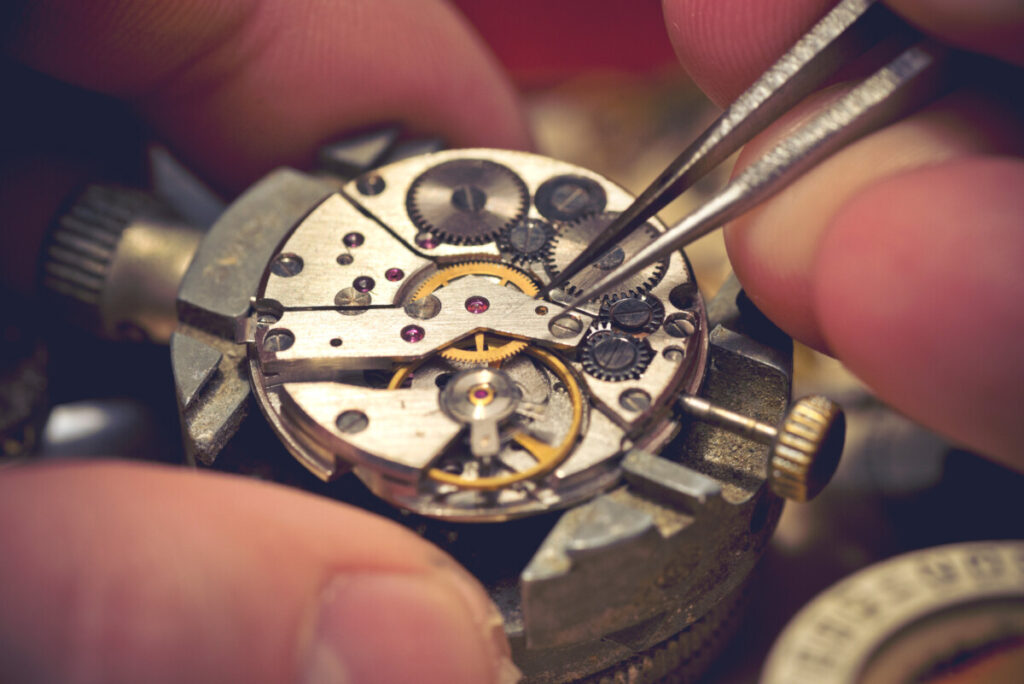
Additionally, you will have to wind it up regularly. This isn’t necessarily a hard thing, but you will have to be extra careful about not letting the watch stop which can get worrisome and exhausting. You will have to wind it up every day and keep tabs on it in case it should stop all of a sudden.
Final Verdict
Whether you buy a manual or automatic watch is largely up to you. However, if you want another perspective, an automatic watch is an easier and nowadays more practical option. You won’t have to worry about winding or changing batteries, plus fancy automatic watches are resistant to corrosion and wear and tear for a long time. If you want a watch with expert craftsmanship and character, choose a manual by all means. However, if you’re more into modernized watches with proven reliability, an automatic is the best option.

